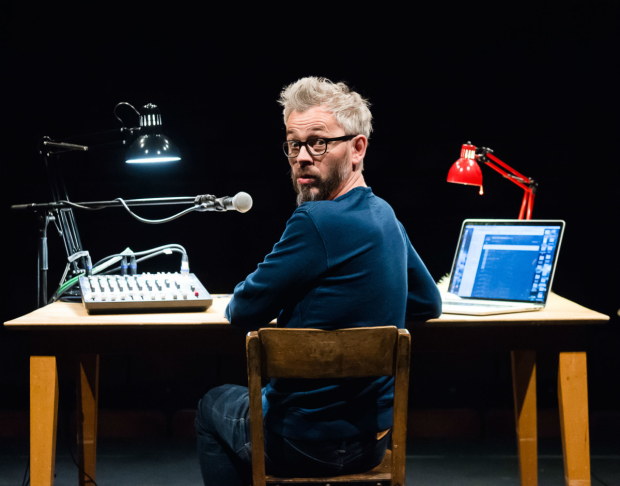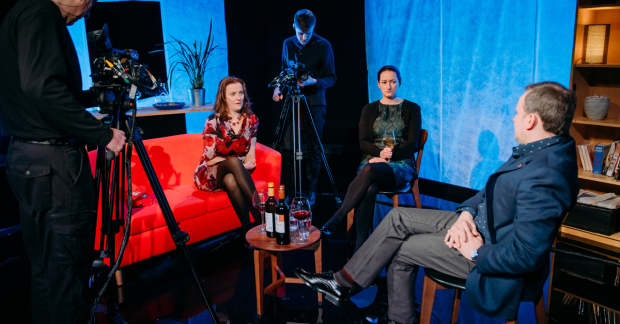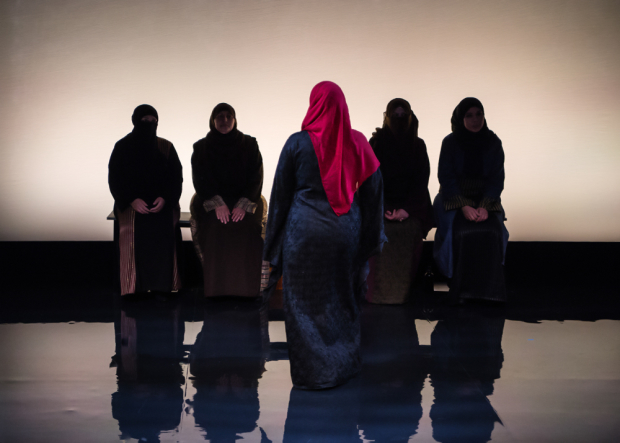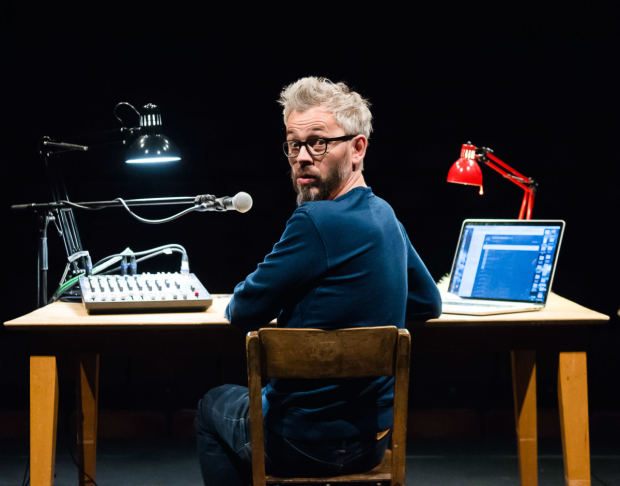Can theatre have a meaningful impact on the refugee crisis?

Earlier this year, I five-starred The Destroyed Room by Vanishing Point – an incisive piece about our relation to the refugee crisis. Matthew Lenton’s take-down of the way we talk around the subject ends with a series of video images. You see people – refugees – struggling against the sea, some in boats, some in the water in life-jackets. They’re real people in real danger. All the chatter beforehand seems so self-indulgent as a result.
The ending shook me. It had a serious emotional effect and I rode the bus home in silence, shell-shocked by what I’d seen.

© Mihaela Bodlovic
The Destroyed Room was impactful, but six months down the line, I can’t really say it had an impact. Metaphorically, perhaps. Emotionally, certainly. But concretely? In practical terms? Not a jot. I didn’t get home and make a donation. Nor have I volunteered in any way as a result. I can’t speak for anyone else, but The Destroyed Room hasn’t changed my behaviour one bit.
I take no pride in that, of course, but does it mean the show has failed? In a sense, it’s part of the chatter it critiques, not the action it demands. It’s only theatre, after all.
One of the recurrent themes of this blog is the way theatre changes the world: not in a flash, but cumulatively. No one show tilts the axis of history, but every show shifts something or somebody. The Destroyed Room and shows like it play a part in something bigger. Each is one instance among many of our being exposed to the issue. They sit alongside every news report and charity appeal, speaking a different language and engaging our emotions in another way. Theatre might be the thing that cuts through to us or it might just nudge us towards the tipping point where apathy turns into action.
But can it do more than that? Can theatre have a concrete, practical, meaningful impact – however small – on the refugee crisis?
'No one show tilts the axis of history, but every show shifts something or somebody.'
That question pushed Shôn Dale-Jones to create The Duke. It’s a show he plays for free, asking for donations afterwards instead. Created on the cheap – no set, no cast fees – all the money it raises goes straight to Save the Children. Following its Edinburgh fringe run, it’s now out on tour: the Unicorn Theatre this week, then stints at Soho Theatre, the Royal Court and the Barbican.
The Duke never tries to ram home how awful the refugee crisis is – not the scale, nor the suffering. Dale-Jones knows we know, and that heartstring-tugging or guilt-tripping won’t change much. Instead, he offers a slight, surreal story that ponders the value of art. Afterwards, we face the same question ourselves. How much do we donate in response? What value do we place on his art? What value do we place on people?
Last week, a group of theatres announced a scheme offering free tickets to those refugee children in the Calais migrant camp legally entitled to join their families in the UK. I heard it dismissed outright: a meaningless gesture from a bunch of luvvies. ‘What good does a theatre trip do?’ detractors ask. One critic expressed concern that it might reinforce an image of naïve, idealistic artists; their hopeful heads stuck in the clouds.
Perhaps – but it has two practical effects. First, it puts the issue back in the press and so pressurizes the government into acting. Whether taken up or not, the offer itself is an act of activism. Second, while the group acknowledged that the offer is not a solution, it is nonetheless a gesture of welcome.
'Theatre can’t solve the refugee crisis, but it can be part of the solution in its own small way'
That, it strikes me, is something theatre can do in practical terms – but it depends on a shift from production to participation. Rather than making theatre about refugees, it means making theatre with them. Projects like West Yorkshire Playhouse’s weekly Asmarina Voices singing group forge a sense of belonging, while productions such as the Young Vic’s parallel Macbeth – created alongside Carrie Cracknell’s main stage version last year, with a cast of young Lambeth locals and newly arrived refugees – open opportunities for introductions, integration and friendship as part of the process.

© Vanja Karas
Handing over the stage, as participatory productions like Queens of Syria and Now We Are Here do, gives voice to individuals, allowing them to express and make sense of their experiences. Whatever the effect on audiences, these productions have a real impact for their participants. The Battersea Arts Centre is currently collecting people’s stories for a festival around the idea of migration. To see one’s own story on a significant stage in a new country, that’s a hugely powerful thing.
Theatre can’t solve the refugee crisis – no matter how much it presses home the situation. It can, however, be part of the solution in its own small way. It can help refugees into their new communities, provide the space and means to tell their stories. It can open its doors and invite refugees in. Doing so means talking less and doing more.











